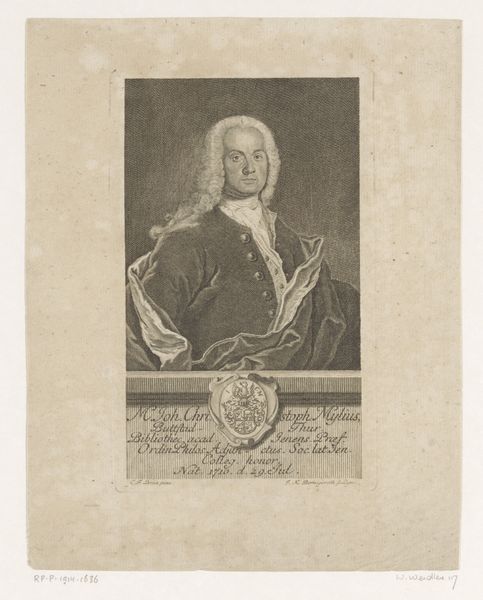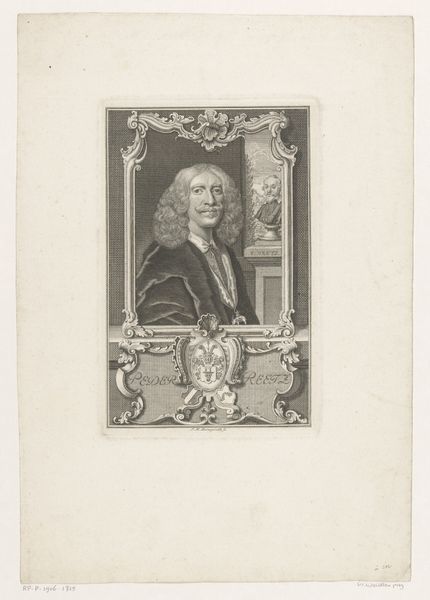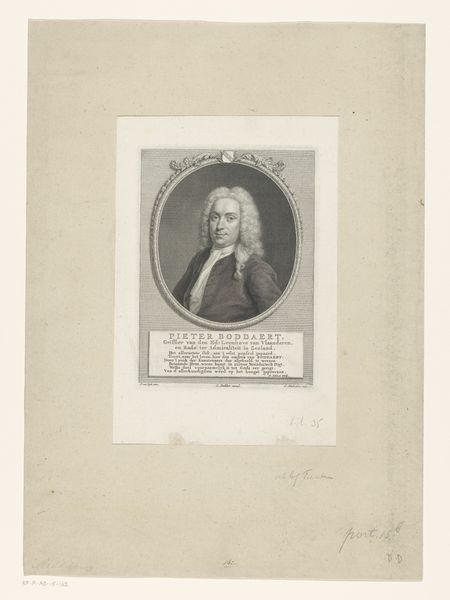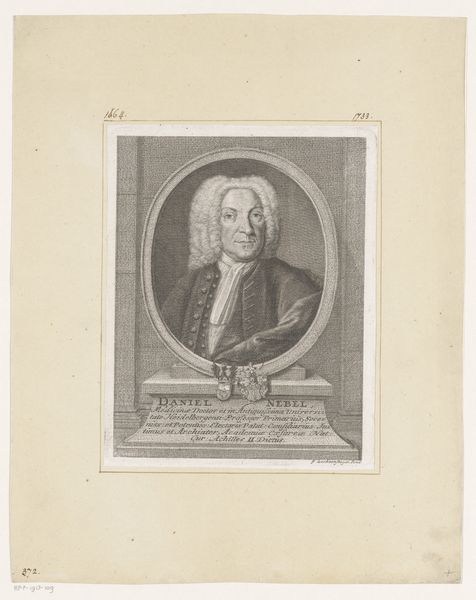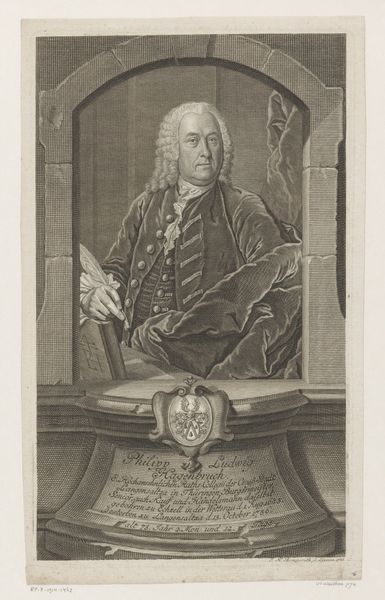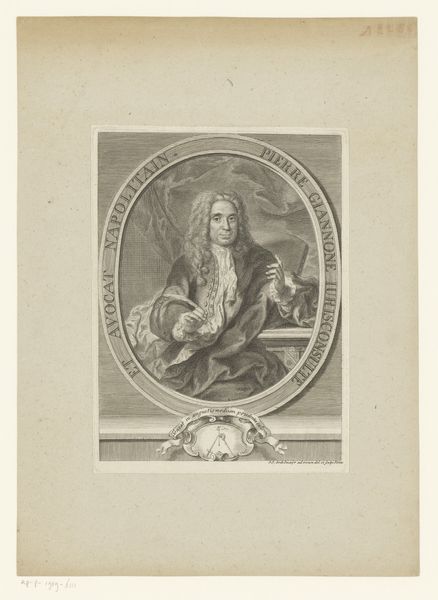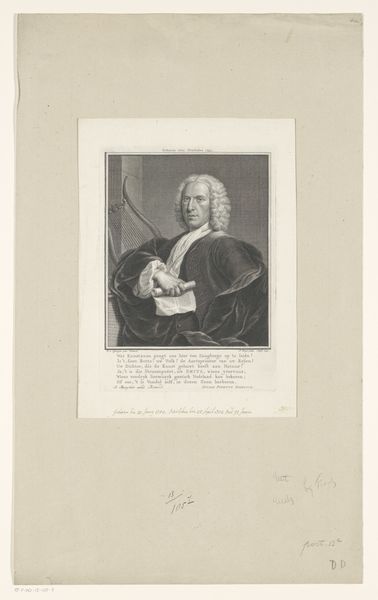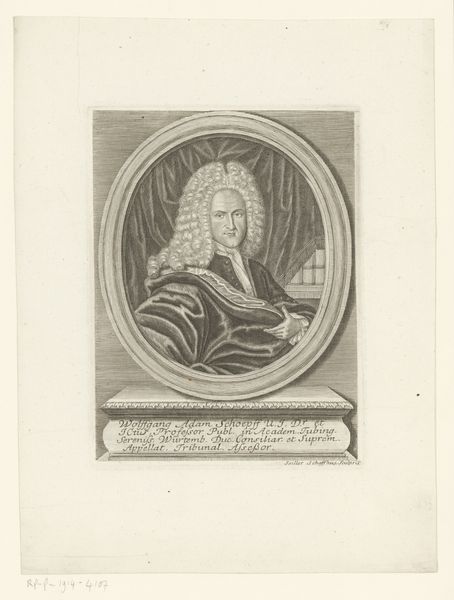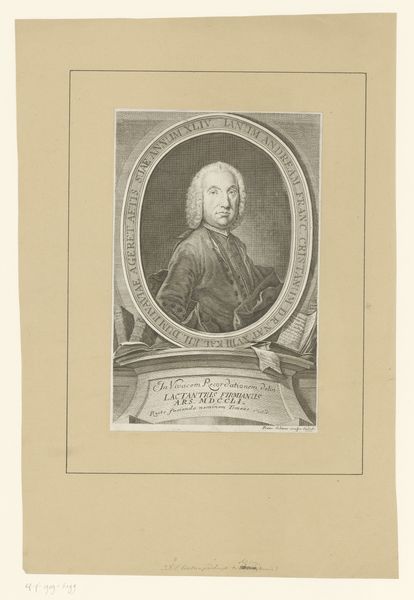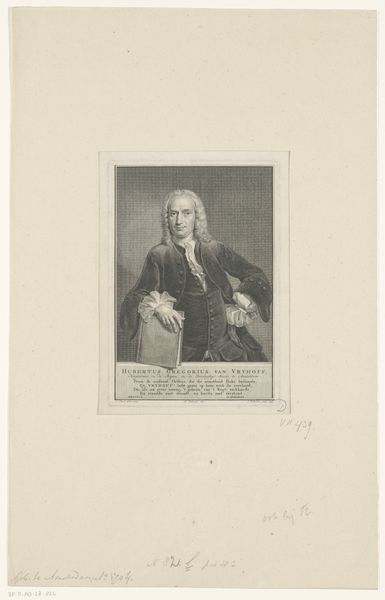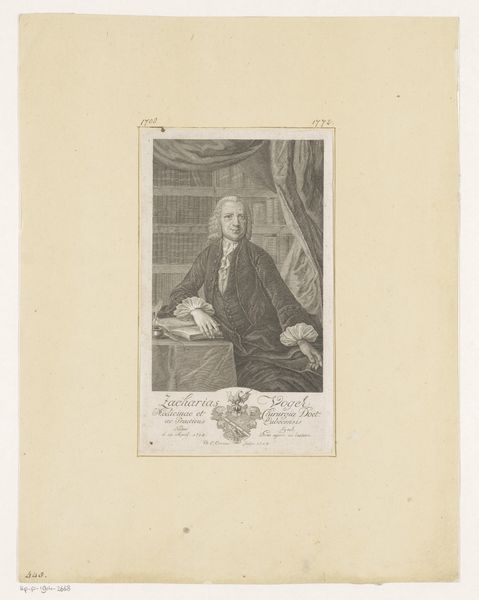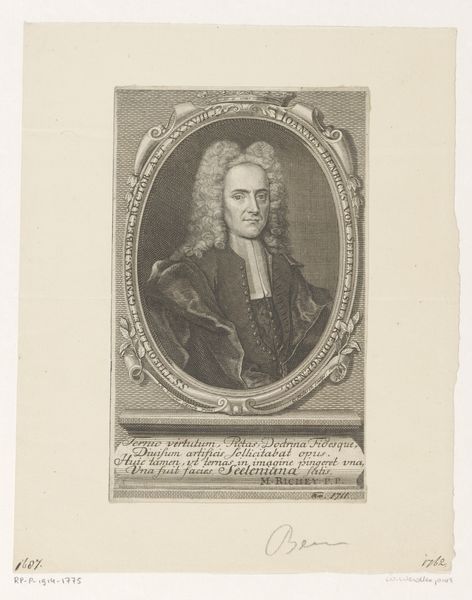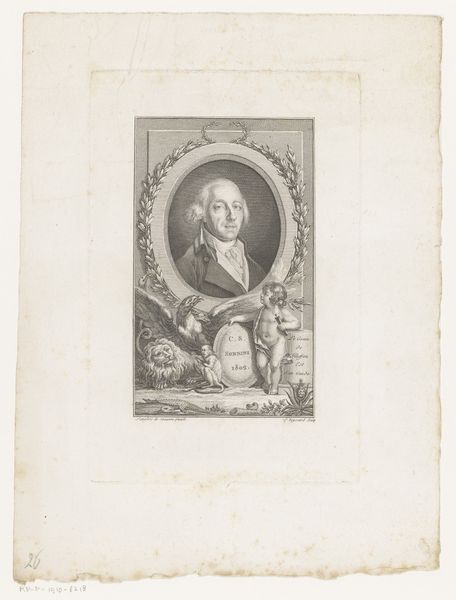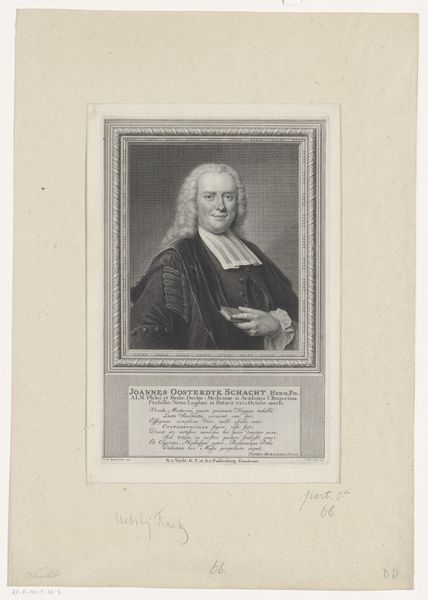
paper, engraving
#
portrait
#
baroque
#
paper
#
history-painting
#
engraving
Dimensions: height 235 mm, width 170 mm
Copyright: Rijks Museum: Open Domain
This is a portrait of Georg Gottlob Richter, made by Georg Daniel Heumann using engraving techniques. Engraving is a printmaking process, where the artist carves a design into a metal plate, usually copper, using a tool called a burin. Ink is then applied to the plate and the surface wiped clean, leaving ink only in the engraved lines. The plate is then pressed onto paper, transferring the image. This method demands a high level of skill and precision. The clean, sharp lines you see here are characteristic of this process, enabling the fine details of Richter's face and clothing to be captured with remarkable accuracy. The printmaking process allowed for multiple impressions to be made, facilitating the wider distribution of Richter's likeness. This speaks to the social context of the time, where portraiture was not just for the elite, but increasingly accessible to a broader public. The labor-intensive process of engraving contrasts with the potential for mass production. Thinking about materials and making helps us understand how the culture of craft and the rise of print media are intertwined.
Comments
No comments
Be the first to comment and join the conversation on the ultimate creative platform.
